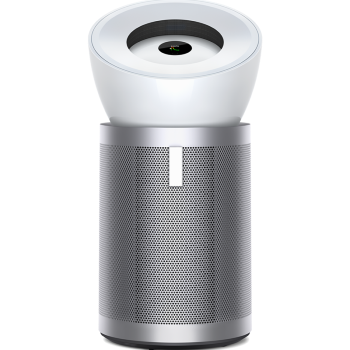How to Write Blog Articles that Get Traffic and Results from Google
Introduction
If you have an online journal, you presumably want the nation to express it. Individuals with the highest rank habits to get the community to state your online journal searches rank higher on Google search results pages (SERPs).
But by what means do you rank higher on Google SERPs?
Well, skilled are plenty of belongings you are full of enthusiasm for, but one of the ultimate main searches is to draft online journal items that are amended for search engines.
In this guide, I'm making use of sharing a few tips on how to address site articles that criticize lengthy Google By following these tips, you can increase your chances of appearing larger on Google and arriving at more promising bookworms.
Body
1. Choose the right field
The first step in manuscriptizing an online journal item that ranks on Google is to pick the right field. You are going to pick a point that has to do with your aim of hearing what a good search book is.
To learn what topics your goal hearing is curious about, you can use magic words for entry research finishes, like Google Keyword Planner. These forms can help you find keywords that have to do with your area and have a good number of weekly searches.
Once you've chosen a field, you need to make sure that there is enough demand for it. You grant permission for this by hindering the search capacity for the magic words for entry. If the search capacity is depressed, it's likely that skilled people are not interested in the argument.
2. Write an irresistible title
Your title is before anything else the public will see when they follow your magic words for entry, so it's mainly to form a good feeling. Your title concedes the possibility of being clear, short, and educational. It endures more and involves your target keyword.
Here are a few tips for a novel with an irresistible title:
- Use powerful, alive participles.
- Avoid using all caps or overdone typographical symbols.
- Be specific and educational.
- Include your aim magic words for entry in the title.
- Make sure your title is catchy and consideration-capturing.
3. Structure your item
Once you have a title, you need to start constituting your item. This method utilizes headings and subheadings to end the relationship in your document and manage it smoothly.
Headings and subheadings are also important for SEO. Google uses headings and subheadings to comprehend the makeup of your item and to label the main issues that you're explaining.
When writing essay headings and subheadings, understand to use your goal magic words for entry in a few of them. This will help Google appreciate what your item is about and rank it higher in the search results.
4. Write for your hearing
When reading your online journal item, keep your aim in mind. What do they ask about? What are their questions? Write in a clear and concise style, and avoid utilizing dialect.
You should try to make your item charming and entertaining. You can do this by using reading, humor, and an account of a person's life.
5. Use keywords strategically
You concede that possibility involves your aim magic words for entry throughout the whole of your item, but forbiddance entices. Keyword filling will only hurt your SEO. Instead, focus on utilizing your magic words for entry simply and in a habit that makes sense for the circumstances of your item.
Here are a few tips for utilizing keywords strategically:
- Include your magic words for entry in your title, headings, and subheadings.
Use your goal keyword throughout the whole of the crowd of your item, but refrain from stuffing it.
Use accompanying keywords and synonyms in your item.
Use long-tail keywords that are more distinguishing and less ambitious than short-tail keywords.
6. Optimize your representations
Images can make your online journal articles more visibly attractive and charming. However, it's important to develop your figures for SEO.
To develop your figures, undoubtedly, compact the ruling class and adjoin alt content. An alt quotation is a brief description of the figure, and it's mainly for SEO because it helps Google appreciate what the concept is about.
7. Promote your item
Once you've written your site item, be sure to advance it to public publishing and add websites. This will help increase traffic to your item and boost your SEO.
Here are a few tips for advancing your online journal item:
- Share your item on friendly media platforms like Twitter, Facebook, and LinkedIn.
- Submit your item to directories and aggregators.
- Reach out to the added bloggers and request that the ruling class share your item.
Conclusion
Writing site items that criticize lengthy Google is an excellent habit to bring more visitors to your site and evolve your trade. By following the tips in this place guide, you can increase your chances of including more in Google and arriving at more promising scholars.
FAQs
Q: How long will the possibility of my site item last?
A: There is no one-magnitude-fits-all answer to this question. The ideal time for your site item will
Q: How long should my blog article be?
The ideal length of your blog article will depend on the topic and your target audience. However, it's generally recommended to write articles that are at least 600–700 words. This is because longer articles tend to be more informative and comprehensive, and they also give Google more content to index.
Q: How often should I publish new blog articles?
The frequency with which you publish new blog articles will depend on your time constraints and goals. However, it's generally recommended to publish new articles on a regular basis, such as once a week or twice a month. This will help to keep your blog fresh and relevant, and it will also give Google more content to index.
Q: How can I improve my blog's SEO?
A: There are a number of things you can do to improve your blog's SEO, such as:
- Choosing the right keywords: Use keyword research tools to find keywords that are relevant to your niche and that have a good search volume. Then, include these keywords throughout your blog posts, including in the title, headings, and body text.
- Writing high-quality content: Your blog posts should be well-written, informative, and engaging. Make sure to proofread your posts carefully and to use images and videos to break up the text.
- Building backlinks: Backlinks are links from other websites to your blog. The more backlinks you have, the higher your blog will rank in Google search results. You can build backlinks by guest blogging, submitting your blog to directories, and promoting your content on social media.
Q: How can I track my blog's performance?
There are a number of tools you can use to track your blog's performance, such as Google Analytics and Search Console. These tools can help you track your traffic, see which keywords are driving traffic to your blog, and identify areas where you can improve.
Q: What are some common mistakes to avoid when writing blog articles for SEO?
Some common mistakes to avoid when writing blog articles for SEO include:
- Keyword stuffing: Keyword stuffing is the practice of including too many keywords in your blog posts. This can make your posts sound unnatural, and it can also hurt your SEO.
- Neglecting the basics: Make sure to proofread your posts carefully, use images and videos to break up the text, and format your posts for readability.
- Not promoting your content: Once you've published a blog post, be sure to promote it on social media and other websites. This will help to increase traffic to your blog and improve your SEO.
Q: How can I find a good blog hosting provider?
A: There are a number of good blog hosting providers to choose from, such as WordPress.com, Blogger, and Bluehost. When choosing a blog hosting provider, consider factors such as price, features, and customer support.



